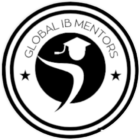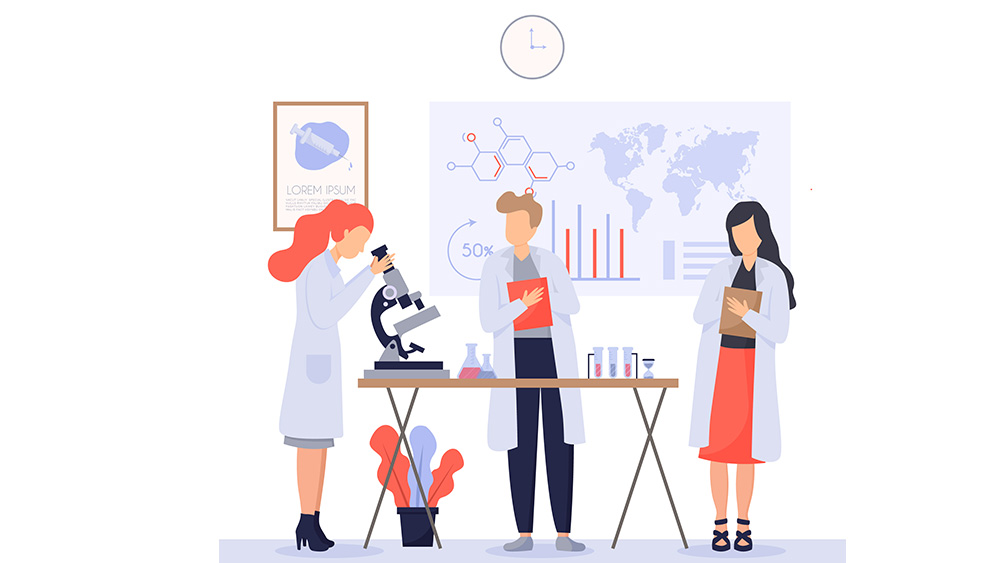GIBM’s Subject: Biology
Biologists use a wide range of methods and techniques to study life at all scales. The cell, with its intricate metabolic processes and molecular make-up, is at one point on the scale. Biologists study the interconnections that enable the operation of entire ecosystems at the opposite end of the spectrum. The 21st century will likely see significant advancements and many new discoveries.
Students should understand how scientists collaborate and function as a team by studying a science subject. Although the scientific method can take many different forms, a practical approach is prioritized. These knowledge and abilities will also be placed in the context of how science and scientists function in the 21st century, as well as the ethical discussions and constraints of creative scientific endeavor, under the overarching theme of the “Nature of Science.”
Science education is practical. Students have the chance to plan studies, gather data, practice data manipulation, analyze outcomes, work with peers, and assess and present their findings. The investigations could employ models and databases in addition to lab work. Students learn how to work freely on their own designs as well as collaboratively, especially with schools from other regions, to reflect how scientific research is carried out in the larger world.
GIBM’s an IB biology tutor is abide by IBDP’s approach for teaching and learning
The Diploma Programme’s methods to learning and teaching refer to deliberate tactics, abilities, and dispositions that permeate the classroom. These methods and resources, which are inextricably related to the traits of the learner profile, improve student learning and help them get ready for assessments for the IBDP and other exams. The Diploma Program’s teaching and learning strategies are intended to:
All Diploma Programme subjects should be taught for 150 hrs at SL and 240 hrs at HL. Practical
- Encourage teachers to go beyond being topic experts and become instructors of learners.
- Give tutors the tools they need to develop more precise methods for fostering learning experiences where students engage in organized inquiry and more advanced critical and creative thinking.
- Promote the objectives of each subject (making them go beyond the goals of the course) as well as the connections between previously dispersed knowledge.
The six teaching approaches—inquiry-based, conceptually focused, contextualized, collaborative, differentiated, and informed by assessment—along with the five learning approaches—developing thinking, social, communication, self-management, and research skills—cover the major values and tenets of IB pedagogy.
Mathematical skills taught by GIBM that are important to study biology
- Perform addition, subtraction, multiplication, and division among other fundamental arithmetic operations.
- Compute using means, decimals, fractions, percentages, and ratios.
- Use bar charts, graphs, and histograms to represent and evaluate frequency data, including direct and inverse proportion.
- Plot graphs containing two variables that demonstrate linear or non-linear correlations (with appropriate scales and axes).
- Create and analyze scatter graphs to find the link between 2 variables, and understand that a connection does not imply a causal connection.
- Calculate and analyze the standard deviation, then calculate the mode & median of a collection of data.
- Choose the statistical tests that are most relevant for the study of the given data, then interpret the findings.
GIBM’s biology tutoring perspectives
Humans naturally have a fascination with life since, in addition to being living creatures, we also depend on many other species for survival, face threats from many others, and coexist peacefully with many others. This curiosity is evident throughout history, from the earliest cave paintings to contemporary wildlife documentaries, as biology continues to attract people of all ages. Employ an IB biology tutor in India from IBGA to make the subject easier for your ward!
By employing a variety of methods and strategies, biologists try to comprehend the living world on all scales. The cell, with its intricate metabolic processes and molecular make-up, is at one side of the scale. Biologists study the interconnections that enable the operation of entire ecosystems at the opposite end of the spectrum.
Biology can be taught using a number of different methods. It is anticipated that an experimental method will be used throughout the IB course because biology exposes itself to this kind of study by nature.
FAQ'S
What is IB DP biology?
Within the International Baccalaureate, also known as the IB Diploma Programme, there are two levels of the IB Biology course: Standard level and higher level. Both levels aim to improve students’ comprehension of the physical world and help them gain analytical and problem-solving abilities.
IB DP Biology: Is it challenging?
Each class is difficult for a variety of reasons, but IB DP Biology is unquestionably the hardest course, and students studying it can expect to have several difficulties.
How many biology IB course subjects are available?
The subjects in the biology course are arranged. The six basic themes are studied by both standard-level (SL) and higher-level (HL) students. The first six fundamental themes are expanded upon in some of the extra five areas that HL students learn.
What is IB biology SL?
Standard-level biology is less comprehensive and in-depth than HL biology in both breadth and depth of information. A mandatory internal laboratory practical that is completed, graded and counted as part of the pragmatic programme is required of all students in order to successfully complete the course. Be aware that there are four sections in total; not all Alternatives are examined. The Optional portion must be completed.
What is SL biology content and course structure?
The demanding SL Biology course covers six essential biological topics in addition to one option. These necessary subjects are part of the Core content: Cells, molecular biology, genes, ecology, evolution, and biodiversity, as well as human physiology (digestion, immunity, gas exchange, circulatory framework, neurological system, hormones, reproduction, and homeostasis), are all covered in this course. Students choose one of four Option sections to study additional material from Option A, Neurobiology and Behaviour; Option B, Biotechnology and Informatics; Option C, Ecology and Conservation; or Option D, Additional Studies in Human Physiology.
How to study IB DP biology?
Because there is a lot of biology terminology, be sure to review vocabulary frequently during your research time and to memorize crucial phrases as you learn new topics. Exam questions with multiple choices frequently test your comprehension of crucial topics, so be mindful of words like glycogen, glucagon, and glycolysis that are simple to misunderstand. Uncertain of the proper level of study detail? Mark schemes can be used to determine the best way to answer a question and the specifics that must be included.
Where to find the best IB biology tutor in Delhi-India?
IBGA is the best coaching institute to find the experienced IB biology tutor.
What biological idea is the most challenging?
Students sometimes find it challenging to understand certain biological ideas and concepts, such as protein synthesis, photosynthesis and respiration, cell division (meiosis and mitosis), hormone control, oxygen transport, the nervous system, and genetic modification.
What is an IB biology passing score?
IB examinations are evaluated on a rating system of 1–7, with a passing score of 4 for high level and a passing score of 3 for standard level exams. The following conditions must be satisfied in order to get the IB DP based on IB examination results:
- Earn at least 24 points
- .Get a minimum of twelve points if you take three Higher Level subject tests.
What do IB's poor marks entail?
All IB students should receive ratings of A and B. D or F students are not regarded as being in “good standing.” Students must transfer back to their sending school to finish their high school studies if they receive an IB course semester grade of F.
Related Courses
WHAT STUDENTS SAY
















